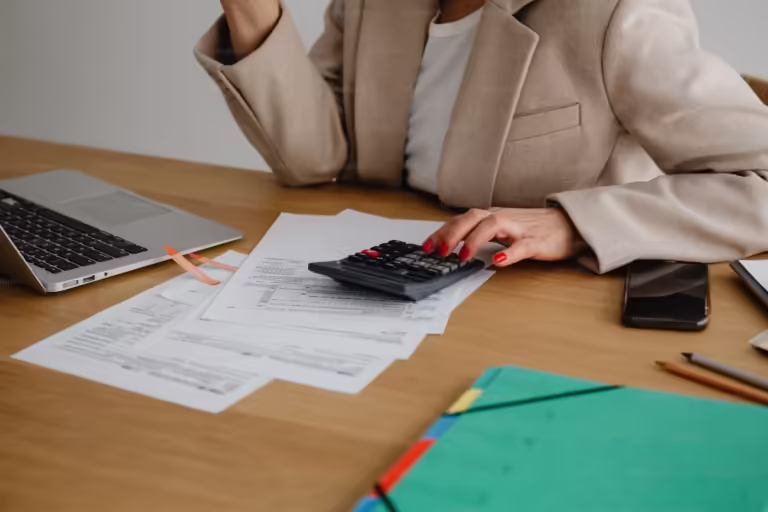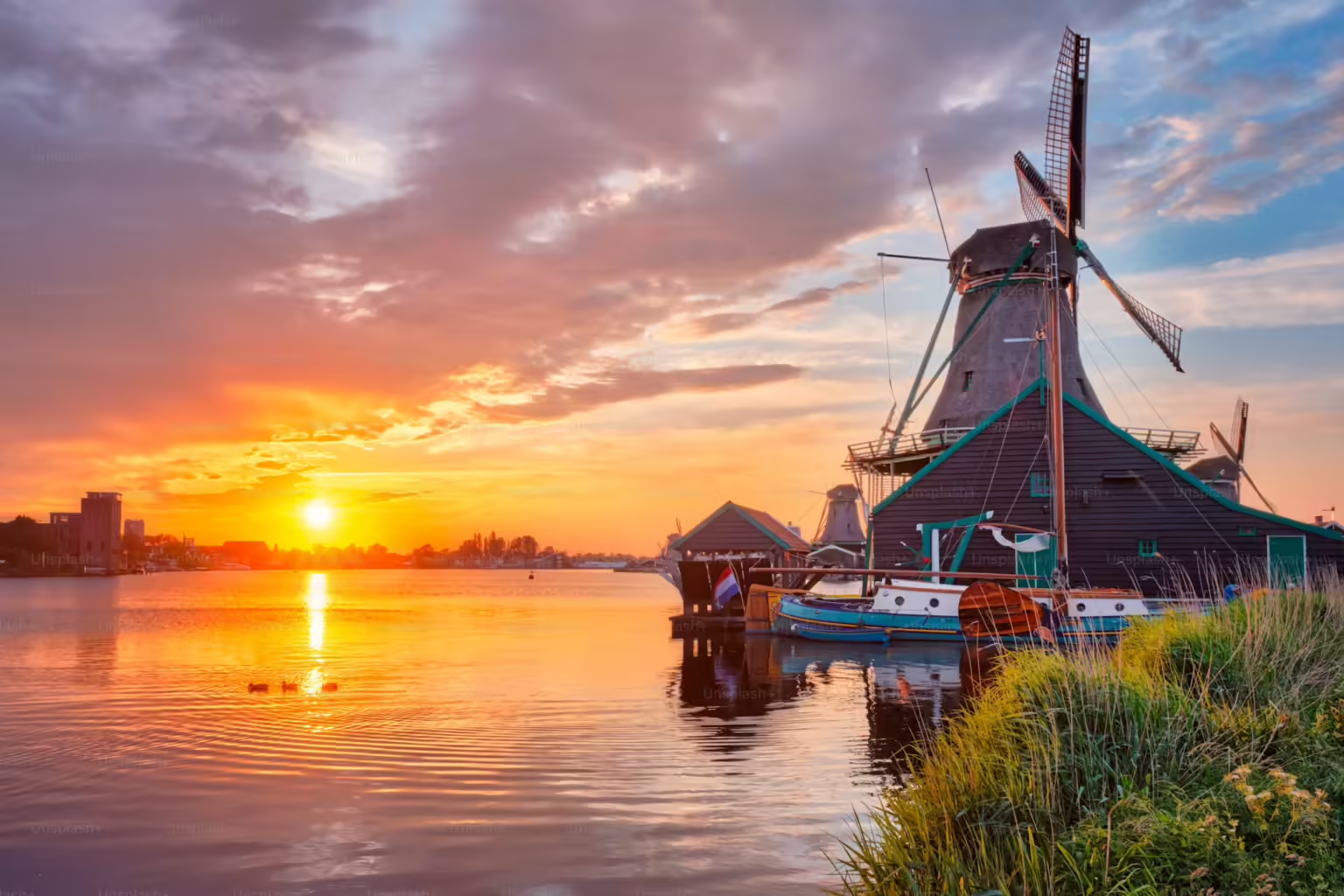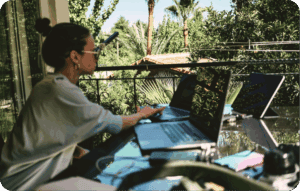Moving to the Netherlands Checklist
- Personal Administration
- Resident Permit
- Municipal Address Registration
- Social Security Number (BSN)
- Bank
- Health Insurance
- General Practitioner
- Finding Housing
- Home Insurance
- Utilities
- Internet
- Water
- Gas and Electricity
- Taxes
- Waste Tax
- Water Tax
- Sewage Tax
Moving from one place to another is not an easy task. It takes serious planning and organization of logistics, finances, and paperwork. And moving into a country like the Netherlands also has its own set of requirements. So whether you’ve recently moved in or just about to move into a new house or apartment in this country, this article is for you!
In ‘Personal Administration’, we let you in on the basics of living in the Netherlands. Resident permits, address registration, banking, insurance, and general practitioners are vital in this country. But if you’re already looking into moving into a new apartment, you can jump straight to ‘Utilities’ for all the 411 on apartment living.
Last but not least, taxes. We know this isn’t the most exciting subject matter. But it is still important to know what they are and what to do with them – especially in a country you’re just moving into. Don’t fret because we are here to help you out on your moving journey!
Personal Administration
Set up your personal administration to make your move official. By adhering to these requirements, you can experience being a proper citizen of the country.
1. Resident Permit
Getting a residency permit is a top priority for moving to any country. But before you apply for one, check first if you need a residence permit or visa. You need one if you fall under these two categories:
- You’re staying in the Netherlands for more than 90 days
- You’re not a citizen of Switzerland, Norway, Iceland, Liechtenstein or an EU country; you have to get a residency permit.
In the Netherlands, various types of residency purposes call for specific permits of their own. As you apply for one, make sure to select the right permit for you. After this, you can go through the other parts of the application process. Be on top of submitting personal documents, and stay up to date during the decision period. In this section, we share with you the basics of applying for a residence permit.
Types of Permits
There are different types of permits depending on your reason for applying. Read on to find out which one is best for you:
Family and Partner
Get this permit if you want your partner or child to live in the country with you.
Work
You apply for this permit if you want to work as a migrant in the country. It also includes sponsor recognition, hiring a foreign employee and intercorporate EU transfers.
Study
Those looking to fulfill university or secondary studies in the Netherlands need a student permit. Vocational education programs and even post-graduation job hunting are included here.
Au pair and Exchange
If you want to work and live in the Netherlands as an au pair, this is the permit for you. This is also for people going to the country through a cultural exchange or working holiday.
European Union (EU), EEA (European Economic Area) or Swiss Citizens
People from the EU, EEA, and Switzerland have their own set of residence permits to apply for. Family members and partners of these places’ citizens also need this permit. Those who fall under the Brexit Withdrawal Agreement can also apply for frontier worker, temporary or permanent residence permits.
Long-term EU Residency
This permit is for long-term EU residents wanting to live in the Netherlands. People with a Dutch permanent resident permit seeking a long-term EU permit can also apply.
Other Residence Permits
There are also residence permits for returning citizens, medical treatments, and victims of honor-based or domestic violence.
Asylum
In the Netherlands, you can apply for asylum and even a second one. It also covers families, permit extensions, and permanent asylum residencies.
Processing your Application
From setting appointments to uploading documents, the steps in applying for residency are crucial. Here are some of the things to take note:
Biometrics appointment
One of the top aspects in the application is the biometrics appointment. It starts with a letter from the Immigration and Naturalisation Service or Immigratie en Naturalisatiedienst (IND). They require your photo, signature, and/or fingerprints for your resident document. From there, you set your biometrics appointment at the IND or an expat establishment. You will need to take your photo at the IND desk.
You need to bring a valid passport and appointment code from the email confirmation. You may also bring an expired residency permit or old Foreign Nationals Identity Document if you have any.
Decision periods
Decision periods vary depending on the nature of the application. But to estimate, legal decisions generally take 30 to 90 days. There are also other cases that take eight weeks, six months, and even an entire year. Check the IND’s website for more detailed and relevant information
Creating your My IND account
Your My IND account is where you view your data and application status. You need to use DigiD for this. My IND also lets you view follow-up options for your application, and the actual residency permit you have.
Uploading documents
You need to upload documents before and during the application process. Digitising your files is also important since the IND only accepts PDF and JPG files.
2. Address Registration at the Municipality
For those who want to stay in the Netherlands for more than four months, municipality registration is crucial. Remember to process your registration within the first five days of arriving in the Netherlands. After registering, the town hall will issue you a citizen service number or Burgerservicenummer (BSN). Having a BSN means you’re officially part of the Municipal Personal Records Database. Through the citizen service number, the government can keep tabs on the population. If you move homes within the country, you will have to register once again with the municipality of your new place.
If you are looking to register with the municipality of Rotterdam, feel free to refer to our guide for more information.
3. Getting a Social Security Number (BSN)
Acquiring a BSN is one of the most important steps of moving to the Netherlands. You need a social security number for majority aspects of everyday living such as:
Healthcare
You need a BSN to register for Dutch health insurance, which is mandatory if you are living or working in the Netherlands. Without it, you cannot access the healthcare system.
Bank Accounts
Dutch banks require a BSN for opening an account. Most employers will also expect you to have a local Dutch bank account for salary payments, so this is essential for your finances
Taxes and Employment
The Dutch tax authorities (Belastingdienst) use the BSN to identify you for income taxes and social security contributions. Employers will ask for your BSN when you start a job, and it’s needed to pay taxes correctly.
Social Benefits and Services
If you are entitled to any social benefits (such as child benefits, unemployment benefits, or housing subsidies), your BSN is necessary to apply and receive these services.
Education and Childcare
If you have children, you need a BSN to enroll them in school or daycare. It’s also a requirement for childcare subsidies or student finance applications
Housing
A BSN is often necessary when renting a property, especially when registering with utility companies (electricity, water, gas, etc.).
After getting your BSN, you also have to get a DigiD. This is an online identification system that allows you to access government services.
4. Bank
Moving to the Netherlands also means setting up an account at a Dutch bank. While it is not a legal requirement, it will make your life more convenient in a new country. Renting apartments, getting jobs, and mortgage applications require local bank accounts. To apply for one, you need a valid ID and a Dutch residence permit. You will also need a citizen service number (BSN) and proof of address from a utility bill or rental contract. Payment methods in the Netherlands, include cash, card, and online banking. You may still use credit cards or foreign accounts, but fees may be inconvenient. We recommend that you apply for a Dutch bank account to fully embrace living in the Netherlands.
Want to know more about setting up a bank account in the Netherlands? Browse through our Best Bank Blogpost where we share the types of bank accounts, and the top banks to choose from.
5. Health Insurance
In the Netherlands, health insurance is a requirement for all residents and workers, A standard package covers GP consultancies, treatments, and medicine. You also need to get this insurance within four months of your arrival. Remember that a residence permit is a prime requirement for Dutch health insurance. Feel free to refer to the Government of the Netherlands’ webpage for more information. The website lists everything there is to know about Dutch health insurance, permits, payments, documents, and healthcare benefits.

6. General Practitioner
Another thing to include in your checklist is having a general practitioner or GP. The GP is your go to person for all things medical care. They are healthcare specialists who went through proper training and medical education. The GP answers your health inquiries, and performs standard examinations and minor surgeries as needed. They are also your referral for other specialists and hospitals. In the Netherlands, you cannot access hospital specialization without your GP’s official approval.
To help with your search for your GP, let us direct you to ZorgkaartNederland. It is a search engine for finding the most suitable care provider for you. You can find the best GP for you according to profession, organization or disease.


7. Find housing
Of course, a large part of moving into a new country is having an actual place to live in. However, it is important to note that the Dutch rental market is competitive. This is because 75% of three million rental homes are for social housing. You may start looking for homes in rental platforms like Funda Rental and Pararius. If you’re looking to move to Rotterdam, contact The Citylifer and we would be glad to assist you.



Insider tip:
“It’s best if you go straight to real estate agencies to register. As part of their database, you’ll know of any available homes, before they go live on online platforms. The demand is so high that it is common to find apartments via private databases.”
8. Home Insurance
Unlike health insurance, home insurance is not mandatory in the Netherlands. But it’s always good to be prepared, especially when we’re talking about property damage. There are three types of home insurance, based on your living arrangement:
Household contents insurance or inboedelverzekering
This is the type of insurance you take out if you own or rent a property. It insures you against lost or damaged things that you bring between moving homes. These items include clothing, cash, appliances, and pieces of furniture.
Liability insurance or aansprakelijkheidsverzekering
This is the type of insurance you take out if you own or rent a property. It insures you against lost or damaged things that you bring between moving homes. These items include clothing, cash, appliances, and pieces of furniture.
Building insurance or opstalverzekering
The building insurance is the one to get if you are purchasing a home in the Netherlands. In applying for a Dutch mortgage, this type of insurance is one of the requirements of mortgage providers. Building insurance covers damage to fixtures in your home such as floors, walls, pipes, and roof.
There are two main types of coverage to note, which are the standard and all-risk. The standard insurance covers damage and loss from external factors such as vandalism, burglary, fire, typhoons, and theft. On the other hand, the all-risk one insures you against those you caused by yourself.
Our Home Insurance Guide blog includes all the basics of home insurance. Learn all about the application process, types of providers, estimated costs, and coverage terms.

Utilities
Utilities are top priorities for everyday living. Water, gas, electricity, and internet connection are what make a home liveable. When you’re moving to a new apartment, it can be overwhelming to get a hold of everything. So let us help you out with these general tips for all things related to utilities. We also have a more in-depth Blog Post about Utilities.

1. Internet
The internet is how we connect to the world nowadays. And the Netherlands provides one of the fastest internet in Europe, with a range of 100 to 200 Mbps. So let’s get started with setting things up.
Types of Internet
There are multiple types of internet in the Netherlands, each with their own features. To choose among them, you first need to know their availability. Not every type of internet is available in each apartment. For example, some apartments will only have cable or DSL. This factor also limits the type of providers you may get. So be sure to check with your landlord or preferred provider ahead of time. For now, here is a basic guide to the three types of Dutch internet:
Cable
Cable internet is both fast and reliable. It provides a stable connection regardless of the number of people using the source at the same time. One thing to note is that it has limited providers in the Netherlands.
DSL
DSL is the most accessible internet due to its many providers. It’s also the cheapest one! But unlike cable, the number of online users affects its speed.
Glass Fiber
Glass fiber delivers the fastest connection out of all three types. Upload and download speed can reach 750 Mbps. Like cable, it also has limited availability.
Providers
Contracts
The type of contract you get should be what works best for you. For example, if you are staying in the country for a long time, go for the long-term contracts. These contracts last about one to two years, and may include good deals and perks. If you are looking for more flexibility, you can choose a month-to-month arrangement.
Pricing
The pricing of internet packages depends on the type of connection, and even the speed. For example, large households with heavy internet usage will require a pricier internet package. To give you an idea of how much you’ll spend on internet, we’ve summarized it for you:
Basic
The basic package is for those who live solo, or don’t have heavy internet usage. This goes for about €20 to €30 monthly. If you’re mainly using the internet to browse or check emails, the basic package might be the one for you.
Mid-range
The mid-range services might be the most common one of all. It suits homes with multiple residents who use the internet. The midrange package ranges from €30 to €50.
Premium
The premium package is for big households with heavy internet usage like streaming and gaming. The sky’s the limit with the pricing, with a minimum of €50.
Set it up
You can avail an internet connection by going through digital or physical shops. Once everything is sorted out, the provider will send the router to you. You can set it up yourself, or you may contact the provider for assistance.

2. Water
In the Netherlands, water providers vary per region. To check which company is your area’s supplier, look them up via Vewin. Once you find your provider, visit their website and get more information. If you’re staying in Rotterdam, Evides is your water supplier.
You may register at Edives’ website to avail their services. To file a request, you need to provide your address and meter reading. The meter reading is in the water meter, which can be in the basement, cupboard or central room. The numbers you need are the ones in black text boxes. After submitting your request, you will get an email confirmation from Edives. This is the most straightforward arrangement as it is Rotterdam’s only government-owned supplier. If you want to know more about water services in Rotterdam, click here.
Pricing
The overall cost comprises two main factors. First, there is the “tap water bill” (drinkwater rekening) which is how much water you consume. The other one is a municipal tax or gemeentelijke belastingen, which covers maintenance and pipelines.
Monthly rates also vary depending on the size of the household. For those living solo, prices could go as low as €16.23. For homes with two to four residents, rates could range from €22 to €35.
3. Gas & Electricity
Gas and electricity comprise the energy utilities in the Netherlands. The largest providers include Vattenfall, Budget Energie, Eneco, Greenchoice, and Engie. The key to choosing the right one for you is by comparing their offerings. To help get you started, we’ve created a guide for the best energy providers in the Netherlands. You can adjust the filters to your preference. Specifics like budget, duration, and type of electricity are yours to tinker with.
Contracts
Dutch energy providers also offer different kinds of contracts. Choose the one that best fits your budget and preferences:
Fixed-rate
Prices of gas or electricity are the same throughout the contract. Fixed rates go for about one to five years.
Be careful with fixed contracts as they cannot be cancelled anymore. If you want to cancel a one-year contract, you need to pay the full year as a “cancellation fee”
Non-fixed or variable rate
Prices can change during the contract period. Depending on market conditions, rates can vary around every six months.
Dynamic energy
Like the variable rate, this tends to change as well. Price fluctuations are due to energy supply and demand. Rates can even change on an hourly basis
Pricing
A lot of factors come into play for monthly energy costs. Consumption behavior and rates, contract conditions, insulation types, and energy labels comprise the overall cost. The energy label measures the energy efficiency in your home. It has a range for the most to the least energy efficient, from A to G. Another thing to note is gas and electricity have different pricing systems. Gas prices vary for every type of property. Nibud’s data shows that monthly costs for gas can range from €108 to €234. As for electricity, it’s all about the size of your household. Solo households can cost €24 per month, and can reach up to €82 depending on the number of people in the home.
Important Reminders
- Don’t wait until the last minute to set up your utilities. The utility company may need to do onsite work in advance. You also need to be at home for this to check. As for energy, gas, and water, you can arrange them after moving in.
- For gas and electricity, set up a contract with a provider before moving in. If not, you will receive a reminder from the municipality. Further inactions will lead to disconnection.


Taxes
Last but definitely not least, taxes. Every country has them. In the Netherlands, people pay taxes on their wealth, income, and assets. Every month, the Dutch Tax Office deducts tax from your salary. You also need to file tax returns before the end of each year. For everything there is to know about the Dutch tax system.
Another thing that defines the local experience is municipal tax. These payments help in the municipalities’ social services. And if you’re moving to Rotterdam, here are the taxes to keep in mind:
Waste tax (afvalstoffenheffing)
This tax funds the municipality’s waste collection and processing. This is a mandatory payment, but costs depend on the household size. However, there could be exceptions, depending on your income.
Water tax (waterschapsbelasting)
Water tax in the Netherlands goes to the municipality to treat and sanitize water. The Delfland Water Board gives two different charges for these services. Unlike waste tax, water tax is only about the household as a whole, not its size.
Income-based exceptions are also possible.
Sewage tax (Rioolheffing)
Funds from this tax go to sewage system maintenance and repairs. The municipality collects tax from the apartment owner. The charge could also go to the tenant depending on the contract and government policies.


Other taxes
While we’ve pretty much covered the mandatory taxes, there’s no harm in knowing more beyond that. It’s always good to be aware of other things you might spend on.
Parking tax
You pay a parking tax if you didn’t pay for your parking spot.
Dog tax
A tax you pay annually for having a dog. Its prices and actual requirements vary per municipality so always check yours!
Tourist Tax
Staying overnight and going to a touristy place require this.
Motor Vehicle Tax
You pay for this if you have a registered vehicle in the Netherlands. Prices vary depending on the vehicle type and fuel.
Gambling Tax
The municipality charges this on what you win from gambling or the lottery

Conclusion
If you’re moving to the Netherlands, there are a number of things to keep in mind. First, you have to apply for a residency permit and set up a My IND account along the way. Afterwards, register at the municipality to get your official citizen number or Burgerservicenummer (BSN). Once you get your BSN, you may arrange your bank account, general practitioner, and insurance packages. Utilities are also a part of everyday living, especially when moving to a new apartment. So when you’re setting up your internet, water, and energy connection, get the ones that best apply to you. Lastly, taxes. It’s important to know what they are, and what the mandatory ones are in your area.
The process may seem like a lot; but we hope to have informed you well about the process of becoming a Dutch citizen. Make sure that practice diligence and accuracy in your arrangements. We wish you the best of luck and who knows, the Netherlands might just be your next home country.

FAQ
No, a tourist visa allows you to visit the Netherlands and other Schengen countries for up to 90 days, but it does not grant you permission to live, work, or study in the country. If you intend to live in the Netherlands for a longer period, you need to apply for the appropriate residence permit.
The municipality issues a citizen service number or Burgerservicenummer (BSN) once you register. It means you’re part of the Municipal Personal Records Database. Having a BSN will also allow you to apply for a Dutch bank account, social benefits, health insurance and more.
Health insurance is a requirement for all those living and working in the country. You need to get one within four months of arriving. Insurance for the home, household contents, and liabilities are not mandatory, but it’s always good to prepare ahead!
When you’re moving to a new apartment, be sure to set up your internet and water connections. Energy utilities such as gas and electricity are top priorities too.





